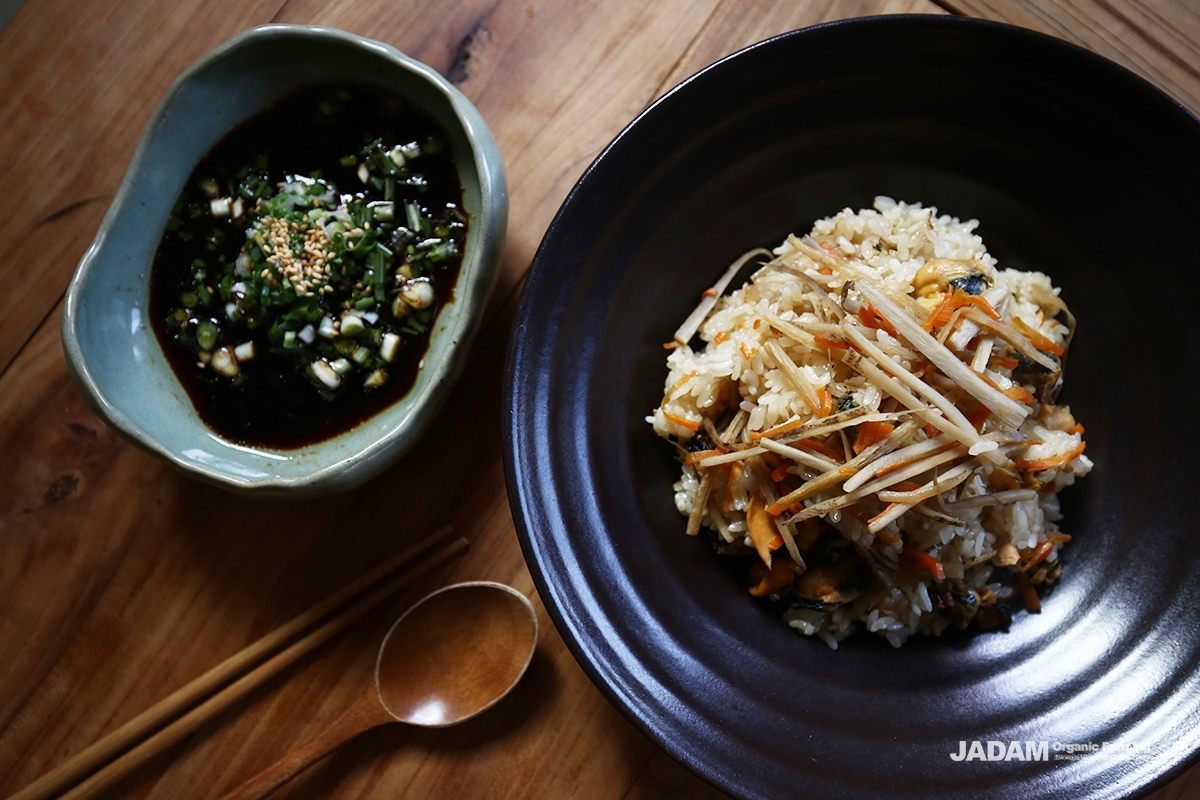Burdock (Arctium lappa) is a biennial plant of Asteraceae and is native plant of Europe. It grows up to 1.5m in height, and the root goes down to the ground with a depth of 30 ~ 60㎝. The leaves on the roots clump together and the stem leaves are staggered. Leaves are in the shape of a heart, with long petiole and sawtooth on the edge.
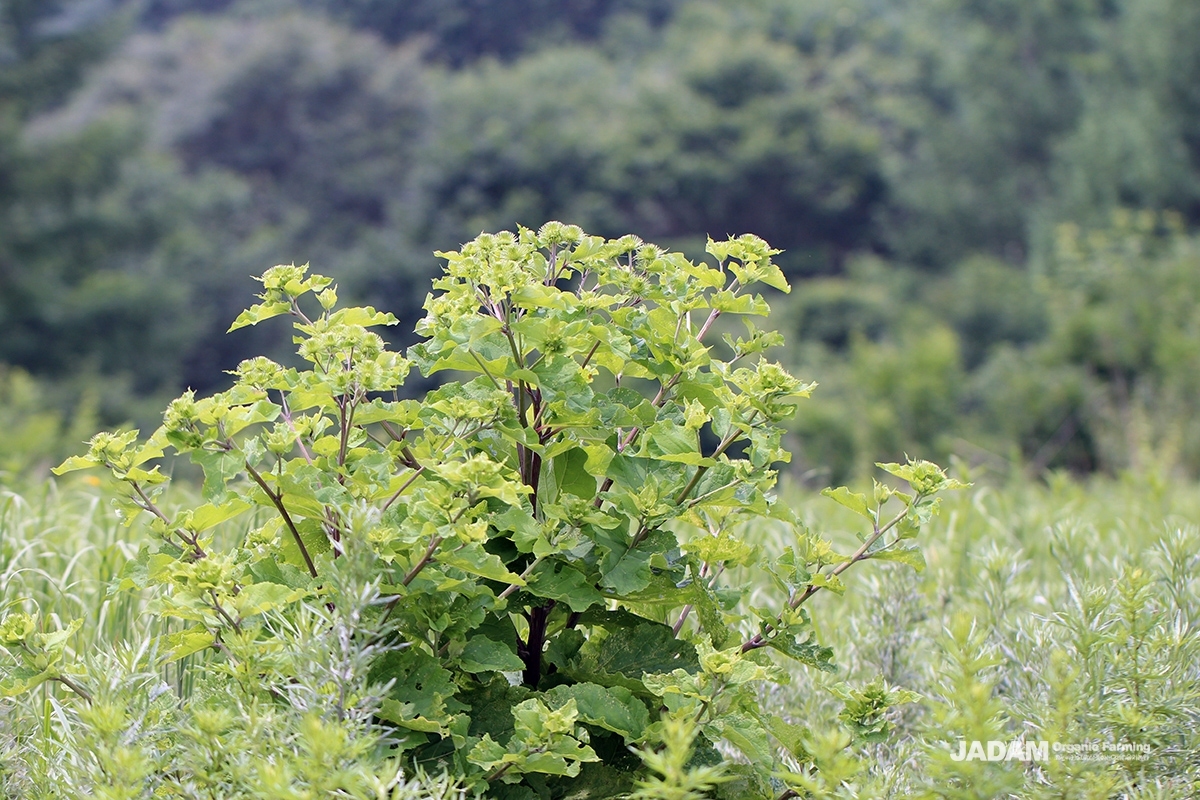 |
| Burdock (Arctium lappa) is a biennial plant of Asteraceae and is native plant of Europe. It grows up to 1.5m in height |
In July-August, a dark purple headdress resembling a thistle flower runs on the end of the branch. The involucre is round, the capsule is needle-shaped, and the tip is hook-shaped. The fruit is achene and ripens in September. roots mainly are cultivated in southern provinces as edibles
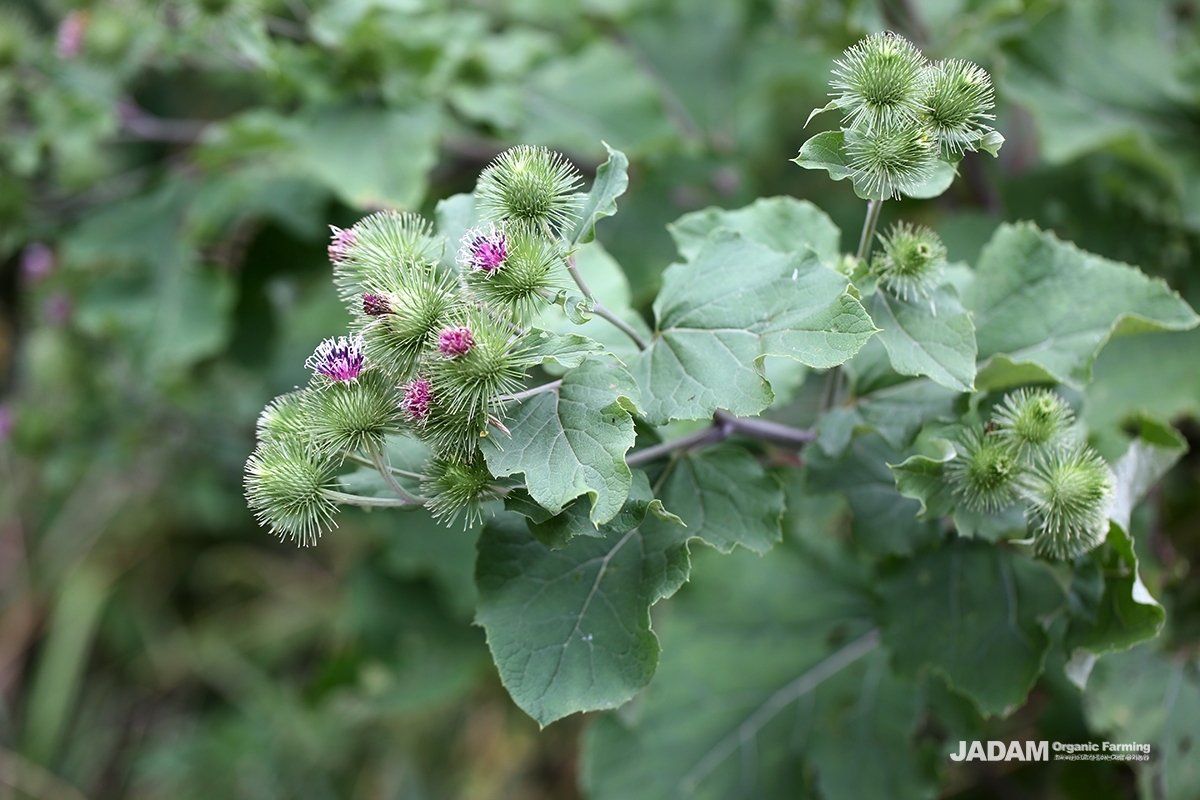 |
| In July-August, a dark purple headdress resembling a thistle flower runs on the end of the branch. |
Burdock has a characteristic scent, alkaline food, rich in carbohydrates and dietary fiber. The young leaves are steamed, wrapped, or seasoned, or put in miso soup. Roots are usually boiled, eaten, sliced, salads, or cooked or cooked. You can also make tempura or pickles. You can also drink the enzyme or alcohol soaked, dried and roasted, tea is an another option as well. If store the roots in vinegar when cooking, you can prevent discoloration and reduce the taste like wasabi spice flavor.
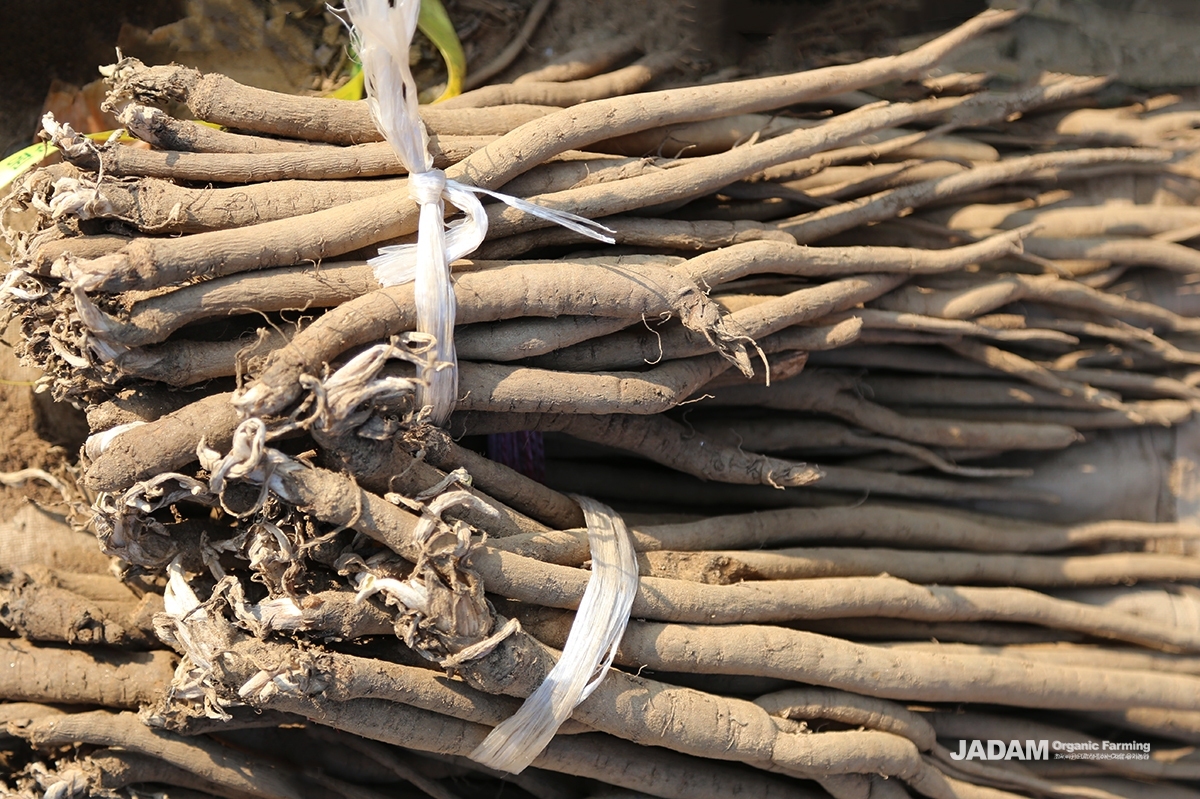 |
| roots mainly are cultivated in southern provinces for edibles |
According to [Ingredients and Usage of Herbal Medicines], seeds have diuretic, anti-inflammatory, drainage and anti-bacterial effects against various molds causing skin diseases. Cold, stroke, and malignant tumors are also effective. The main ingredient in the seeds is arctin, a lignin glycoside. Arctin has an anti-inflammatory, antioxidant effects and expends the blood vessel.
In traditional Korean medicine, the seeds of burdock are called wu bang ja (牛蒡 子), and the roots are called wu bang guen( 牛蒡根) . The taste is spicy and the characteristic is cool. It has the effect of reducing the heat of teeth and releasing the tumor poison. Also can control Coughing, sore throat and smallpox. There is also an effect of lowering the antimicrobial activity and blood glucose level against various pathogenic bacteria.
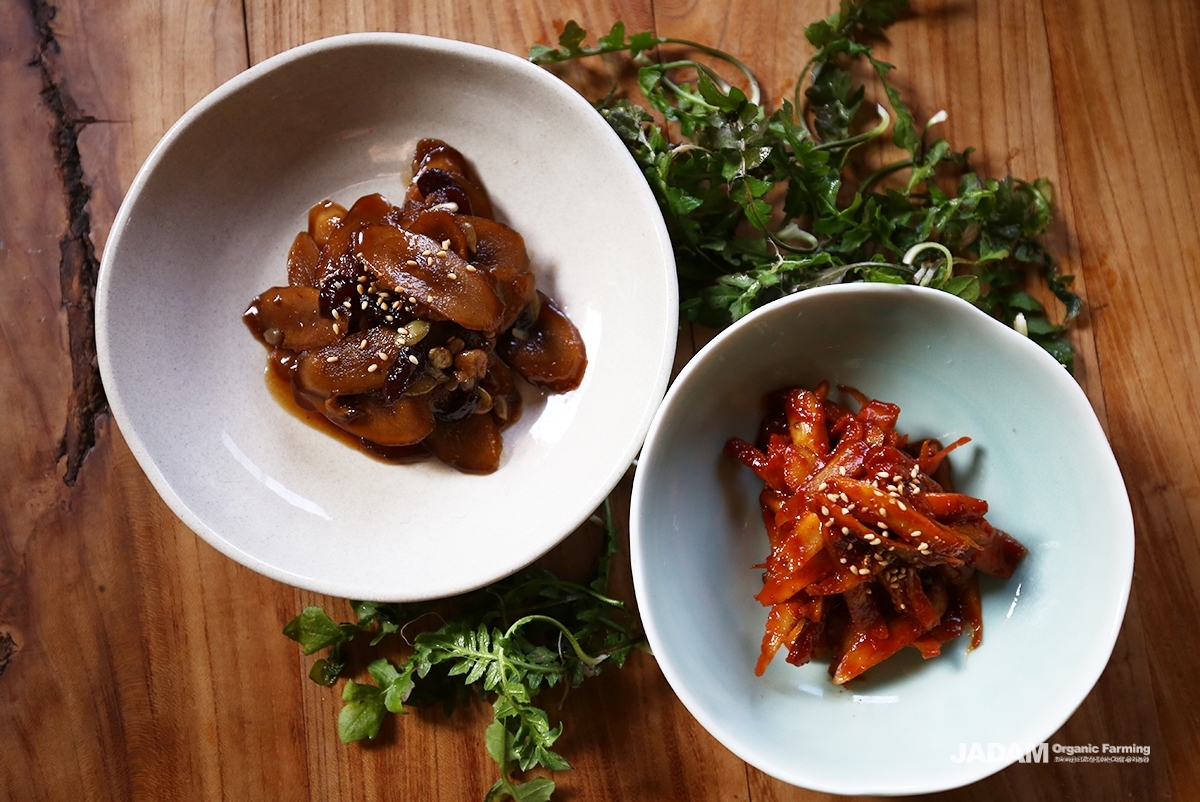 |
| Stewed roots can be eaten as salad or steamed with rice or can be used as an ingredient for noodles. |
The roots contain a large amount of inulin. Inulin is a type of polysaccharide that is not absorbed into the body and is released, so it is good for constipation due to diabetes or diet. It also has an effect on pulmonary tuberculosis, cough, and pneumonia. In civilian, the moon figure makes his hair strong, so he uses it to wrap his head. Burdock has cold properties , so if your body is cold or diarrhea, do not overuse it.
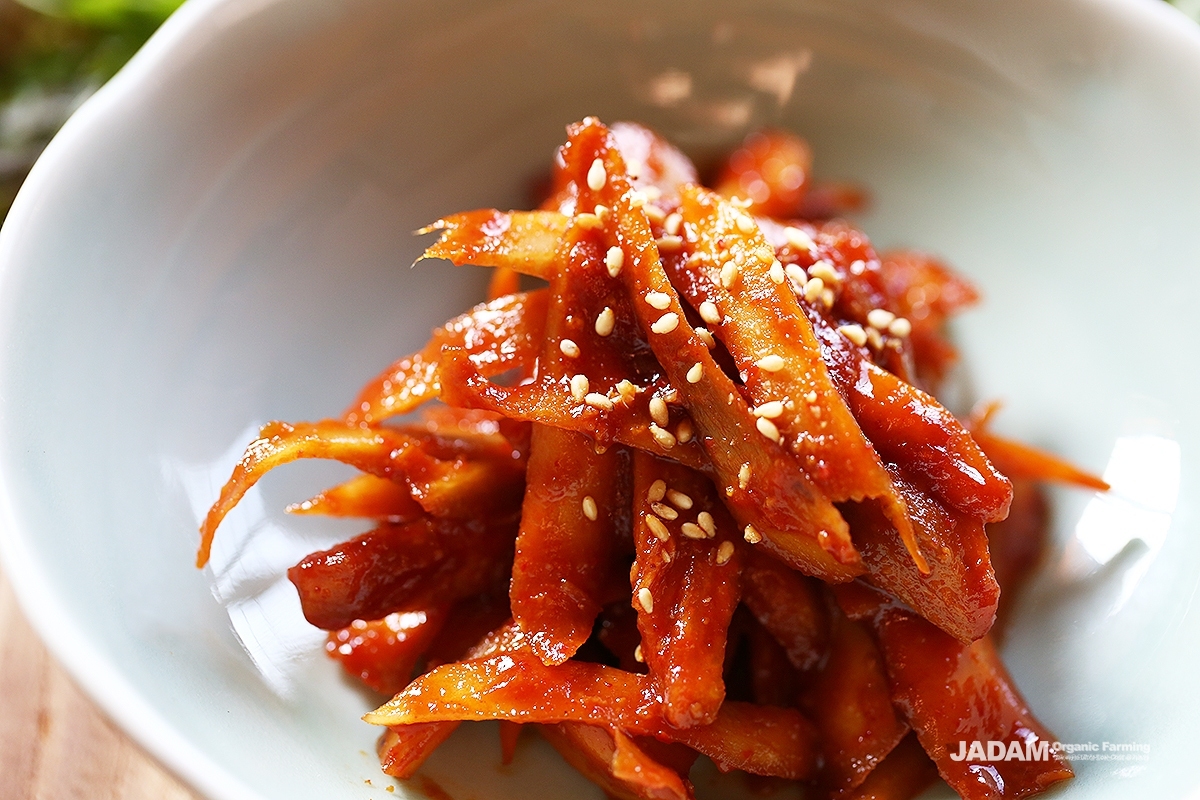 |
| © 2019 JADAM All Rights Reserved |
Breeding is done with seeds. seeds are soaked in water for a day and sowed In spring April to May, . It can be planted in autumn. It is good to plant deep in the ground because the roots fall deeply.
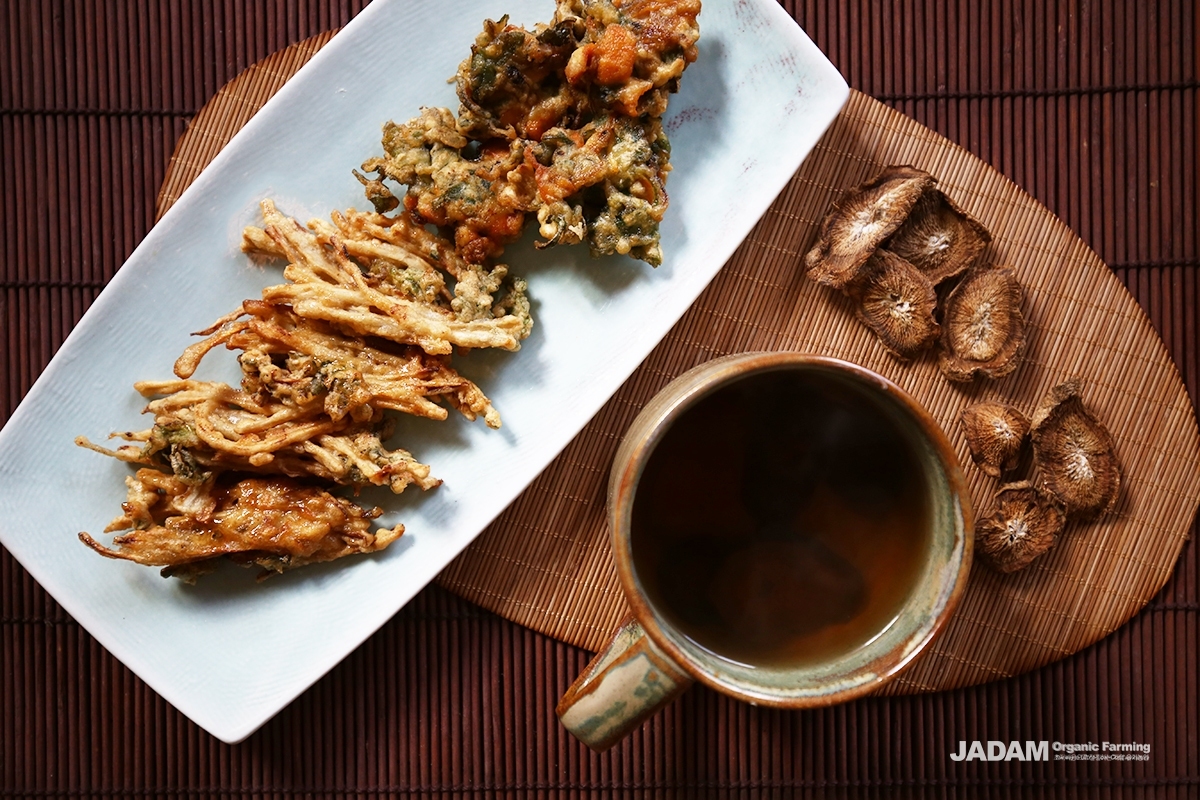 |
| eaves or roots can be made as tempura or pickle. |
[How to enjoy burdock]
1. Young leaves are steamed for wrapping rice, or can be added in miso soup.
2. Stewed roots can be eaten as salad or steamed with rice or can be used as an ingredient for noodles.
3. leaves or roots can be made as tempura or pickle.
4. It can be fermented as alcohol or enzyme and can be dried for tea.
Translated by Sungwoo Cho




